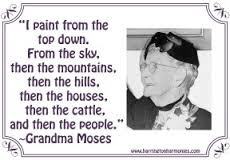A friend said to me
recently “I'm dying.” She's ninety years old and in precarious
health, so it's likely that she will die any day now. She said it in
that sober way of people who have done a lot of thinking in
preparation for the event. I recognized what she was saying
immediately because dying has been the central question of my own
life for over fifty years now.
What surprized me
was how good her statement felt. It was true, and she was sharing it
with me, and it was helping us both to hear it said, to acknowledge
it, to deal with it. We would help each other with dying, help each
other out at the end, like God's spies, a phrase that she has used
with me. It felt good to hear her say “I'm dying.”
Conversely, I now
see what a down, what a drag, what a frustration, it is to be with
people who don't believe they will die.




